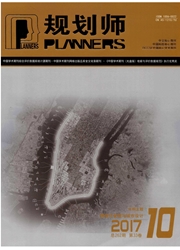

 中文摘要:
中文摘要:
互联网的广泛普及和应用对基础设施、社会经济、居民活动等要素产生系统性影响,进而对城市空间组织的弹性和流动性产生作用。文章从时空压缩、区位因子及空间相互作用模式转变等角度出发,分析互联网对居民、企业、公共设施和场所节点流动性的影响,并探讨智慧社区、智慧办公空间、智慧消费空间和智慧产业空间的流动性特征,最后基于空间流动性变化,提出基础设施整合、要素流与空间协调、混合用地、存量规划等规划管理策略。
 英文摘要:
英文摘要:
The popularization of internet has created systematic impact on infrastructure, socio-economy, resident activities, and affects the flexibility and flow of urban space. The paper studies the space-temporal compression and change of interaction between location and space, analyzes the impact of internet on residents, enterprise, public facility, and discusses the flow of smart community, smart office space, smart consumption space, and smart industrial space, and raises planning management strategies for infrastructural integration, element flow and space coordination, mixed land use, and built up area planning.
 同期刊论文项目
同期刊论文项目
 同项目期刊论文
同项目期刊论文
 期刊信息
期刊信息
